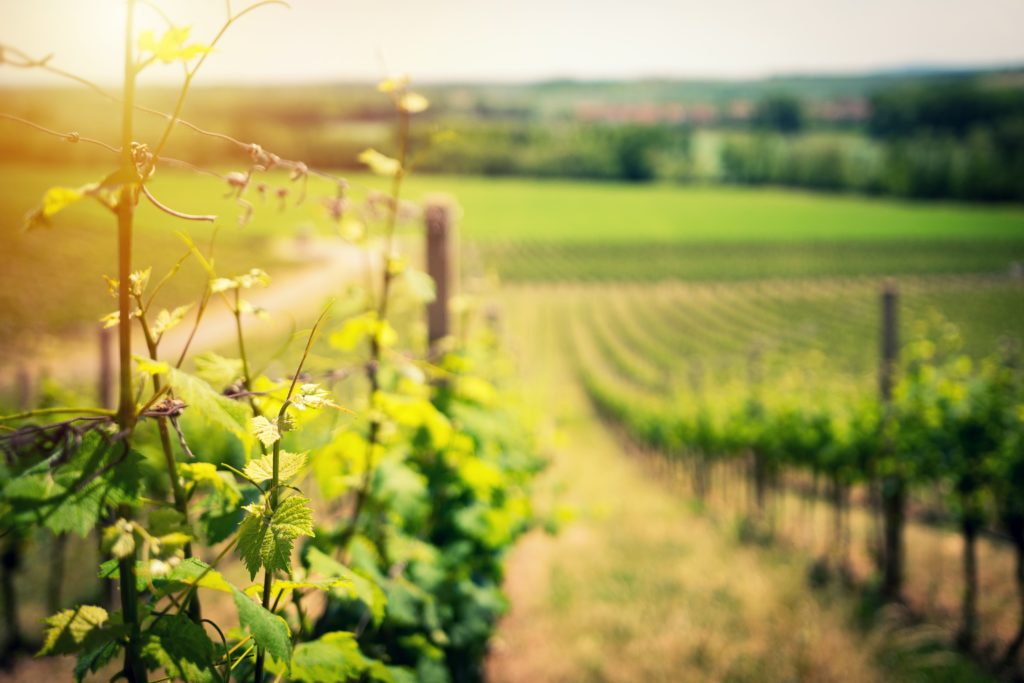
I will sing about the one I love, a song about my loved one’s vineyard: The one I love had a vineyard on a very fertile hill. He broke up the soil, cleared it of stones, and planted it with the finest vines. He built a tower in the middle of it and even hewed out a winepress there. He expected it to yield good grapes, but it yielded worthless grapes.
– Isaiah 5:1-2 (HCSB)
In this part of chapter 5, Isaiah is the speaker telling us about his beloved, who owned a vineyard. And of course the beloved one is God Himself. God planted a vineyard with great expectations that it would yield good fruit. He “expected it to yield good grapes.”
God’s Expectations for His People
God’s people are like a vineyard that he carefully planted. He sets them in the soil with the expectation that they will be fruitful. Yet at the end of verse 2 we read that instead of God’s vineyard bearing good grapes, it “yielded worthless grapes.” Instead of righteousness and justice, they produced wickedness and injustice.
As we read this passage, we must evaluate our own fruitfulness. Are we loving God the way we should? Are we being fruitful the way we should? Is the gospel of Jesus Christ being shared the way it should? Or is God looking at His church and saying, “You’re producing bad fruit”?
When we look around our church, we often see more empty seats than filled. Why? It’s because we’re yielding worthless grapes. We’re not sharing with people outside the church what Christ has done for us. We’re not discipling them or teaching them to obey Him. It’s not enough just to tell about Jesus – we must invest in other people’s lives.
When God’s People Bear Worthless Fruit
God looks at what His people are doing and sees them bearing bad fruit. He asks, “What more could I have done for My vineyard than I did? Why, when I expected a yield of good grapes, did it yield worthless grapes?” (v. 4) The Lord did everything for His people and they still rejected Him. As a result, God tells Isaiah what He’s going to do:
I will remove [the vineyard’s] hedge, and it will be consumed; I will tear down its wall, and it will be trampled. I will make it a wasteland. It will not be pruned or weeded; thorns and briers will grow up. I will also give orders to the clouds that rain should not fall on it.
– vv. 5-6
Why was this going to happen? Because God’s people were producing worthless fruit. This is what God said to Isaiah and this is what He’s saying to us. The Lord has given us every opportunity, every tool we could possibly need, and He expects us to love Him. It’s not God’s desire to make His vineyard desolate. But this is the consequence of bearing bad fruit.
Are We Bearing Good Fruit?
The next 20 verses or so is God pronouncing woes on His people. In reading this, it may sound like God is saying, “I’ve had it! I’m just going to leave you.” But the good news is: God will never totally abandon His people. He always provides a way for us to come back to Him.
God does not want to pronounce the woes on us. He doesn’t want to leave us – He wants us to love Him with all our heart, soul, mind and strength. That’s it. And when we get to that point of love, obeying His commands comes naturally. The question we must ask ourselves is: “Do I really love the one I sing about? Do I really sing about the one I love?” Are we bearing good fruit?
When we were at our worst, God provided a way for us to be restored to Him. Through Christ, He made a way for us to have new life and bear good fruit.
Discussion Starters
- What does the vineyard represent?
- What might the “good grapes” be? And the “worthless grapes”?
- Is your local church bearing good fruit or bad fruit?
- How can you tell if you are bearing good fruit?
- Are you growing in your love for God and obeying Him? Are you teaching others to do the same?
Guest Speaker: Bill Millinor







